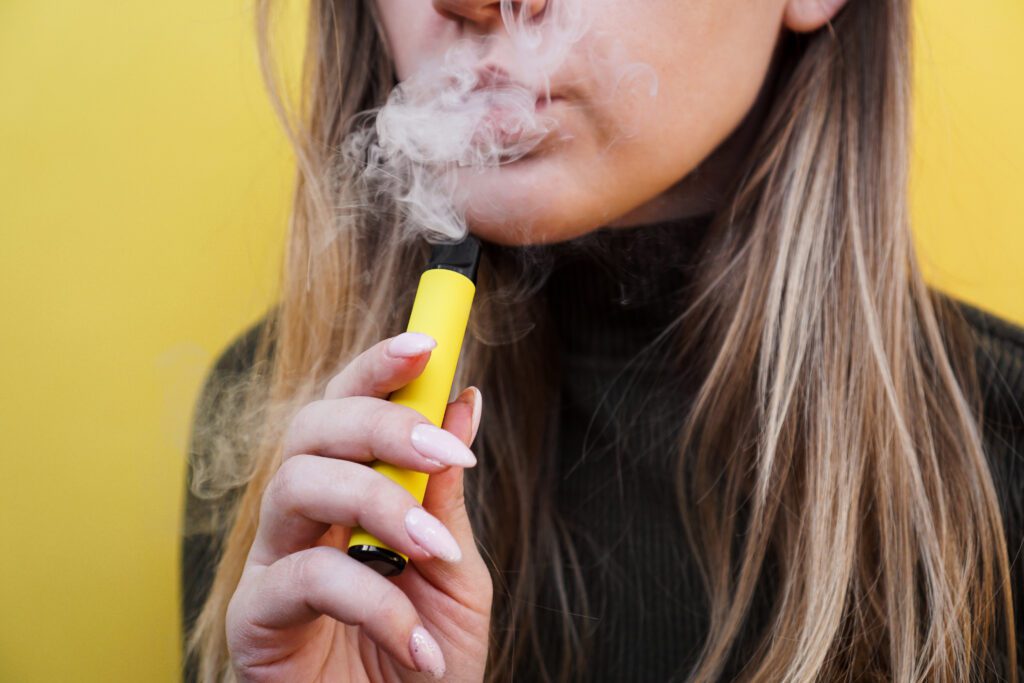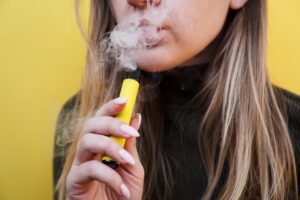With the new academic year approaching schools and colleges will be looking to ensure they can keep their students safe. Vaping, and its dangers for young people, remains a concern for school leaders.
Last year a survey of 4000 teachers in the UK conducted for the teachers’ union, the NASUWT, found 85% of teachers believe vaping is a problem on school premises. Over half (54%) of teachers reported that some pupils repeatedly leave lessons in order to vape, while a third (35%) report that some pupils are struggling to concentrate in lessons due to the effects of nicotine.
An article by the BBC featured interviews with children at a primary school in Bradford before the school holidays. Many of the children had been offered vapes and their school was holding an event to explain to them the dangers of vaping. It is illegal to sell a vape or any nicotine product to someone under the age of 18.
More concerns expressed about spice-laced vapes
For this academic year there is also the additional concern that some teenagers are attempting to vape with THC, the psychoactive ingredient in cannabis, but in fact are vaping the more dangerous synthetic street drug, spice. Both THC and spice vapes are illegal in the UK. Spice can cause a wide range of dangerous side effects, including cardiac arrest, and is a high cause of death within prisons.
As previously reported University of Bath Professor, Chris Pudney, carried out a test of confiscated vapes from schools across England, and discovered spice in 28 out of 38 (74%) schools. This meant that of the 596 vapes confiscated 1 in 6 (16.6%) contained spice.
Professor Pudney, said: “This is not just a niche, one-off occurrence that happens in a school far away from you; this is something common.”
The testing was carried out using the world’s first portable device that instantly detects synthetic drugs developed by an inter-disciplinary team at the University of Bath. This is now being used by Police forces, such as the Devon & Cornwall Police, to more quickly identify whether vapes they seize contain spice.
In an interview with BBC Radio 4’s Today programme Professor Pudney encouraged parents to be vigilant due to the dangers of spice. Additionally, spice is addictive and he was concerned some young people may already be addicts.
A more recent report by the BBC featured an interview with a young person who said he became a spice vape addict and was vaping in school. He said he obtained the illegal vapes from a dealer he found on social media.
The government is due to introduce the Tobacco and Vapes Bill that was announced in the King’s Speech that will bring restrictions to vaping and support enforcement measures. However, Professor Pudney suggested it might need to be revised in order to deal with the growing threat of vapes containing spice.
How schools can tackle vaping
Schools that are looking to take firm action against young people that are vaping have been installing vape detectors, as well as strengthening their behaviour policies and educating pupils about the dangers of vaping.
Ecl-ips can supply the HALO Smart Sensor, an advanced vape detector. One of our customers, Matthew Carpenter, Principal at Baxter College in Kidderminster said as well as reducing vaping: “It has transformed the amount of antisocial behaviour in toilets, children are more confident in going to the toilets. It has also reduced the number of students asking to go to the toilet during lessons.”
Contact us to out more about how vape detectors can help reduce vaping in schools this academic year.



